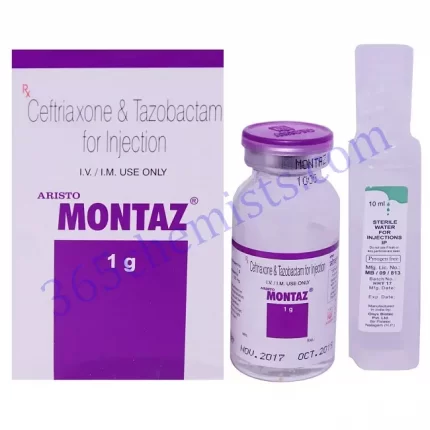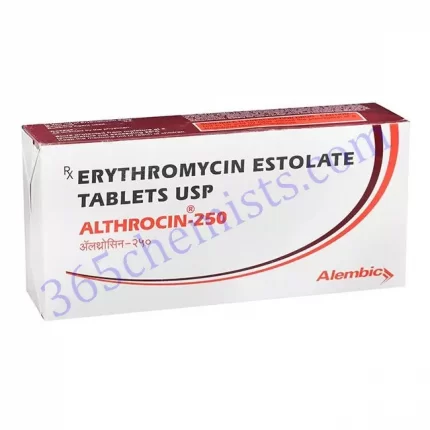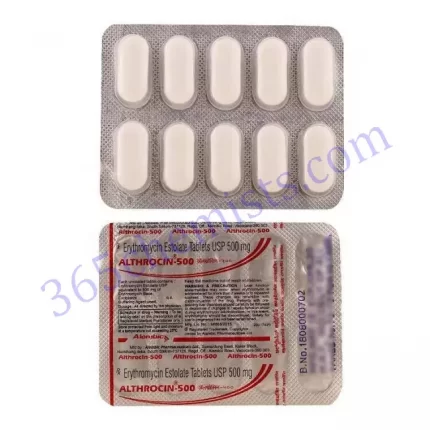Omnicef 1gm Injection: Potent Antibiotic Treatment with Cefotaxime
Cefotaxime is the primary component of the medicine known as Omnicef 1gm Injection, which is administered via injection. It is categorised as an antibiotic belonging to the group known as cephalosporins and is employed in the treatment of a wide variety of bacterial infections. This article will provide a detailed explanation of Omnicef 1gm Injection, covering topics such as its applications, recommended dosage, potential adverse effects, and essential safety considerations to keep in mind.
Uses of Omnicef 1gm Injection:
Treatment of a wide variety of bacterial infections with Omnicef 1gm Injection is accomplished with remarkable success. The following are the scenarios in which it is utilised:
- Infections of the Respiratory Tract Pneumonia, Bronchitis, and Tonsillitis Are Treated With Omnicef 1gm Injection Patients who have been diagnosed with an infection of the respiratory tract are given this medication. It helps fight the growth and spread of bacteria, which in turn lessens the severity of the symptoms associated with infections.
- Infections of the Urinary Tract Cystitis and pyelonephritis are two types of urinary tract infections that can be treated with the medication that is being discussed. The urinary symptoms and discomfort can be relieved with the use of Omnicef 1gm Injection because it helps eliminate the bacteria that are responsible for the infection.
- Peritonitis and abscesses are two examples of the types of intra-abdominal infections that can be effectively treated with Omnicef 1gm Injection. It accomplishes this by inhibiting the growth of bacteria, which in turn reduces the risk of complications.
Related Product
Omnicef 1gm Injection
Omnicef O CV Tablet
Omnicef O 200mg Tablet
Dosage and Administration:
A qualified medical professional must perform the intravenous administration of the 1 gramme dose of Omnicef Injection. It is possible for the dosage and length of treatment to change depending not only on the nature and extent of the infection, but also on the age of the patient and the state of their health. It is essential to take the medication exactly as directed, in the correct quantity, and for the full duration of the recommended treatment course.
Depending on the severity of the infection and the instructions given by the physician, the recommended dosage for adults is 1 gramme (1 vial) of Omnicef Injection every 8 to 12 hours. This dosage is given as a standard recommendation. The injection is given slowly over a period of time ranging from half an hour to two hours.
Important Precautions:
- Avoid using Omnicef 1gm Injection if you have a history of an extreme reaction to cefotaxime or any other antibiotics in the cephalosporin class. Before beginning the treatment, it is essential to provide the healthcare provider with complete and accurate information regarding any known allergies or adverse reactions to medications.
- Omnicef 1gm as a measure of kidney function Patients who have kidney function that is not functioning normally should only receive injections with extreme caution. During treatment, it is essential to perform vigilant monitoring of renal function.
- Pregnancy and Breastfeeding: While it has been shown that Omnicef 1gm Injection is safe to use during pregnancy and breastfeeding, this has not been thoroughly researched. If you are pregnant, breastfeeding, or have plans to become pregnant while taking this medication, you should discuss your options with a qualified medical professional before beginning treatment.
Common Side Effects:
Omnicef 1gm Injection is generally well tolerated, but just like any other medication, it has the potential to cause a variety of adverse effects. The area around the injection site may become painful or red, and patients may also experience nausea, vomiting, diarrhoea, headaches, and dizziness. These adverse effects are typically mild and fleeting, and they go away on their own without further medical intervention. In the event that they continue or become worse, it is imperative to seek medical attention.
Even though serious adverse effects, such as severe allergic reactions, liver problems, and changes in blood cell counts are uncommon, you should seek immediate medical attention if you experience any of these symptoms. Seek immediate medical attention in the event that you experience any symptoms that are severe or unusual.
Drug Interactions:
It is imperative that you provide your primary care physician with information regarding all of the medications you are presently taking. This includes not only prescription drugs but also over-the-counter medications, herbal supplements, and vitamin products. It is possible for other medications to have an effect on the effectiveness of Omnicef 1gm Injection or to raise the risk that it will cause adverse effects. Notify your primary care provider if you are currently taking any of the following:
Concurrent use of 1 gramme of Omnicef for patients taking aminoglycosides It is possible that the risk of kidney damage will increase if aminoglycoside antibiotics are injected. When using both of these medications together, it is imperative that the renal function be monitored very carefully.
Oral Contraceptives: There is a possibility that oral contraceptives will have less of an effect if you take Omnicef 1gm Injection. During the course of treatment, you should also make use of other possible methods of birth control.
Storage:
Omnicef 1gm When not in use, injection should be kept in a cool, dry place that is shielded from both moisture and direct sunlight. It should be kept out of the reach of both children and animals. If the injection’s packaging is damaged or if it has passed its expiration date, you should not use it.
Summary:
Cefotaxime is the active ingredient in the powerful antibiotic medication known as Omnicef 1gm Injection. This medication is prescribed for the treatment of infections affecting the respiratory tract, the urinary tract, and the abdominal cavity. A qualified medical professional will give it to the patient via intravenous injection. The area around the injection site may become painful or red, and patients may also experience nausea, vomiting, diarrhoea, headaches, and dizziness. Individuals who suffer from allergies, those with compromised kidney function, pregnant women, and nursing mothers are all at increased risk and should take appropriate precautions. There is a possibility of an interaction between Omnicef 1gm Injection and other medications; therefore, it is essential to inform the healthcare provider about all medications that are currently being taken. It is imperative to both store items correctly and pay attention to their use-by dates. Patients can experience the benefits of Omnicef 1gm Injection’s efficacy in treating bacterial infections if they use the medication in accordance with the guidelines that have been provided and seek advice from a qualified medical professional.












